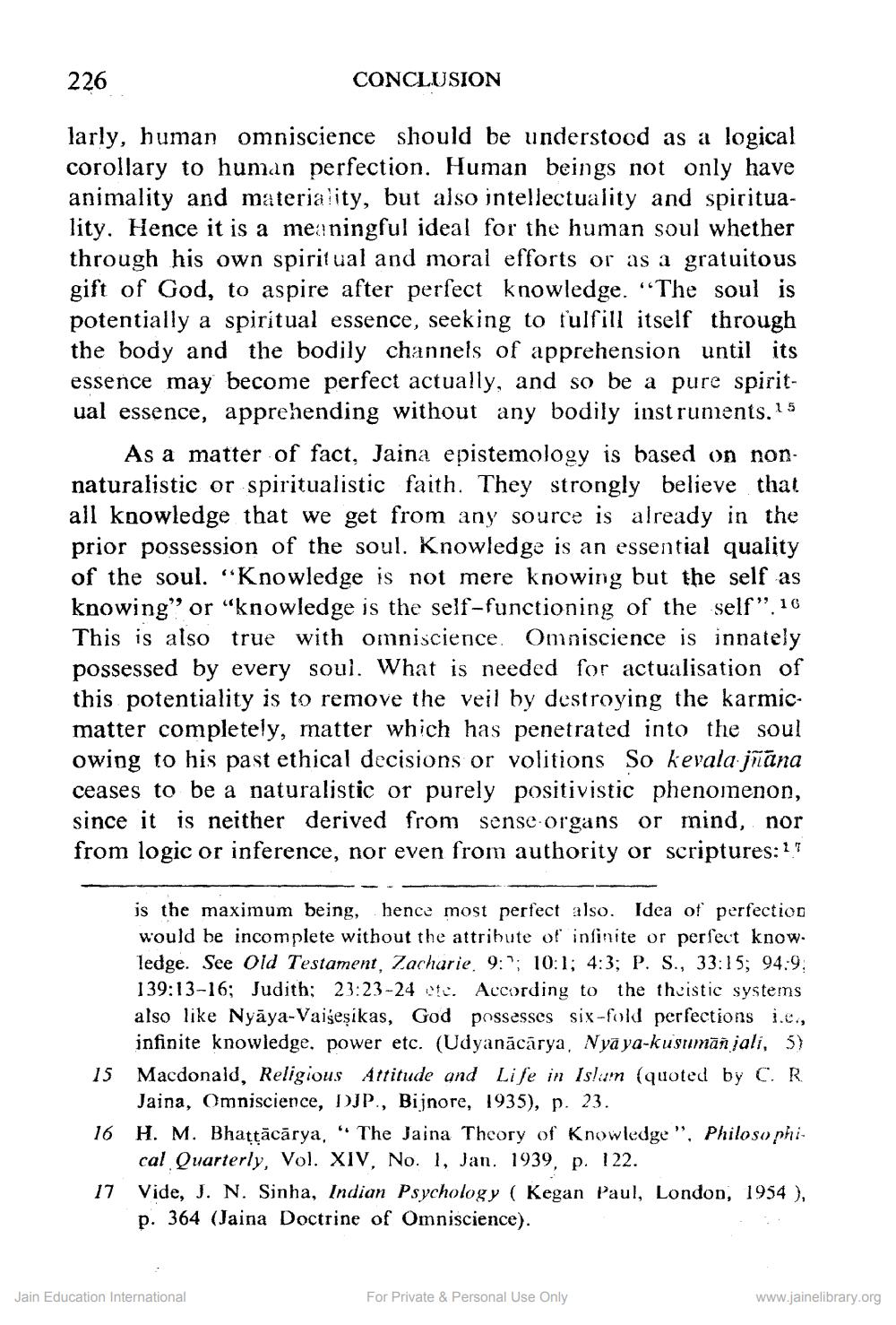________________
226
CONCLUSION
larly, human omniscience should be understood as a logical corollary to human perfection. Human beings not only have animality and materiality, but also intellectuality and spirituality. Hence it is a meaningful ideal for the human soul whether through his own spiritual and moral efforts or as a gratuitous gift of God, to aspire after perfect knowledge. “The soul is potentially a spiritual essence, seeking to fulfill itself through the body and the bodily channels of apprehension until its essence may become perfect actually, and so be a pure spiritual essence, apprehending without any bodily instruments. 15
As a matter of fact, Jaina epistemology is based on nonnaturalistic or spiritualistic faith. They strongly believe that all knowledge that we get from any source is already in the prior possession of the soul. Knowledge is an essential quality of the soul. “Knowledge is not mere knowing but the self as knowing” or “knowledge is the self-functioning of the self”. 16 This is also true with omniscience. Omniscience is innately possessed by every soul. What is needed for actualisation of this potentiality is to remove the veil by destroying the karmicmatter completely, matter which has penetrated into the soul owing to his past ethical decisions or volitions So kevala jnana ceases to be a naturalistic or purely positivistic phenomenon, since it is neither derived from sense organs or mind, nor from logic or inference, nor even from authority or scriptures:17
is the maximum being, hence most perfect also. Idea of perfection would be incomplete without the attribute of infinite or perfect know. ledge. See Old Testament, Zacharie. 9:'; 10:1; 4:3; P. S., 33:15; 94:9 139:13-16; Judith; 23:23-24 cte. According to the thuistic systems also like Nyāya-Vaiseșikas, God possesses six-fold perfections i.c.,
infinite knowledge. power etc. (Udyanācārya, Nya ya-kusuman jali, 5) 15 Macdonald, Religious Attitude and Life in Islam (quoted by C. R
Jaina, Omniscience, DJP., Bijnore, 1935), p. 23. 16 H. M. Bhattācārya, " The Jaina Theory of Knowledge", Philosophi
cal Quarterly, Vol. XIV, No. 1, Jan. 1939, p. 122. 17 Vide, J. N. Sinha, Indian Psychology ( Kegan Paul, London, 1954 ),
p. 364 (Jaina Doctrine of Omniscience).
Jain Education International
For Private & Personal Use Only
www.jainelibrary.org




